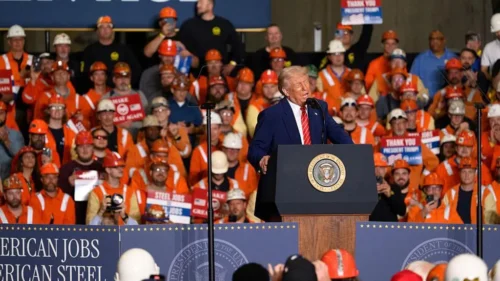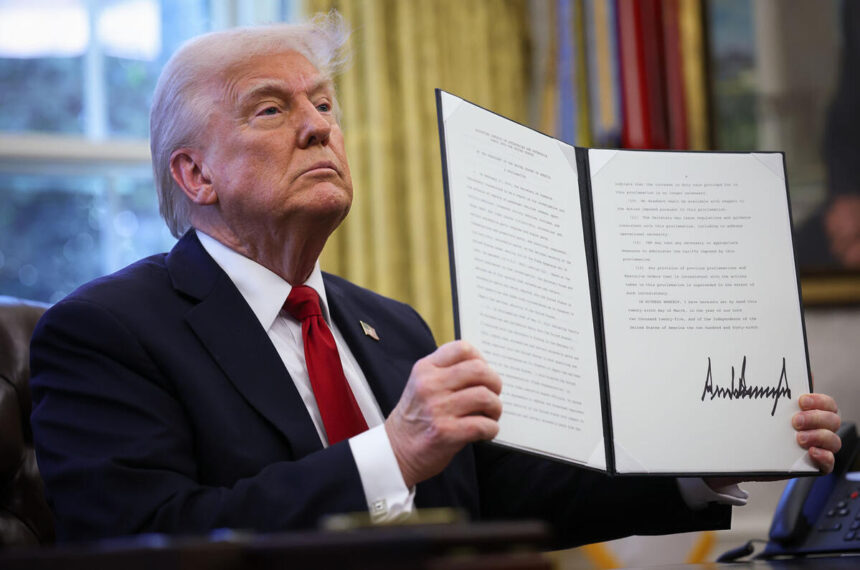President Donald Trump announced on Wednesday that the United States will increase its current tariff rate on steel and aluminum imports from 25% to 50%, effective June 4, 2025.
During a rally in Pittsburgh, Pennsylvania, Trump stated that this action would boost the local steel industry and national supply while reducing dependence on China.
Trump also revealed a partnership between U.S. Steel and Japan’s Nippon Steel, where Nippon Steel is set to invest $14 billion in the region’s steel production. The specifics of the partnership remain uncertain, and neither organization has officially announced the agreement.
At the rally, Trump pledged that there would be no layoffs or outsourcing, and that every U.S. steelworker would receive a $5,000 bonus shortly. He emphasized that this partnership would strengthen the American steel industry and ensure its competitiveness on the global stage.

However, the announcement has raised concerns among some labour leaders and lawmakers. The United Steelworkers union has expressed skepticism about the deal’s structure and Nippon Steel’s role, citing past trade issues and lack of transparency.
Despite these concerns, local and state officials, including Pennsylvania Governor Josh Shapiro, have expressed optimism about the economic benefits for the state.
The Washington Post
The announcement comes amid ongoing legal disputes regarding the constitutionality of certain global tariffs implemented by the Trump administration.
While a lower court had ordered to cessation of the taxes, an appeals court has permitted them to persist. The lawsuit did not affect the tariffs on aluminum and steel.
In addition to the domestic implications, the tariffs have exacerbated relations between the United States and China. Trump accused China of violating a truce established over tariffs earlier this month during discussions in Geneva.
China responded with its allegations of U.S. misconduct, urging the U.S. to cease discriminatory restrictions against China.
As the situation develops, it remains to be seen how these actions will impact the steel industry, labour relations, and international trade dynamics.















